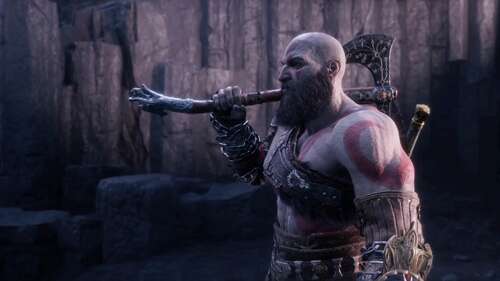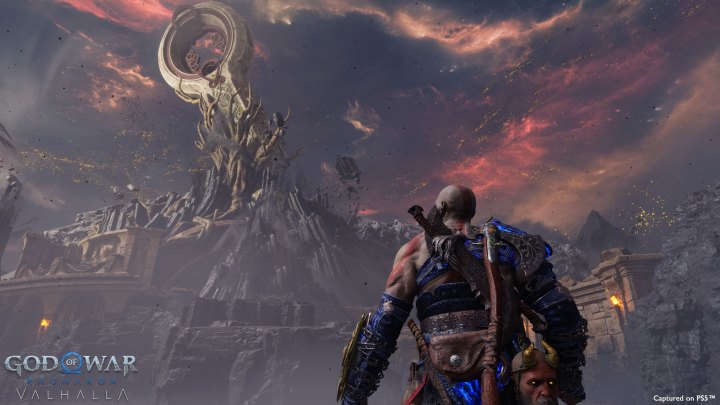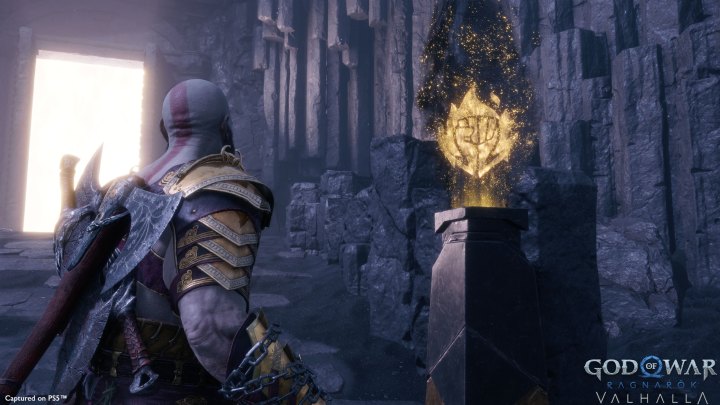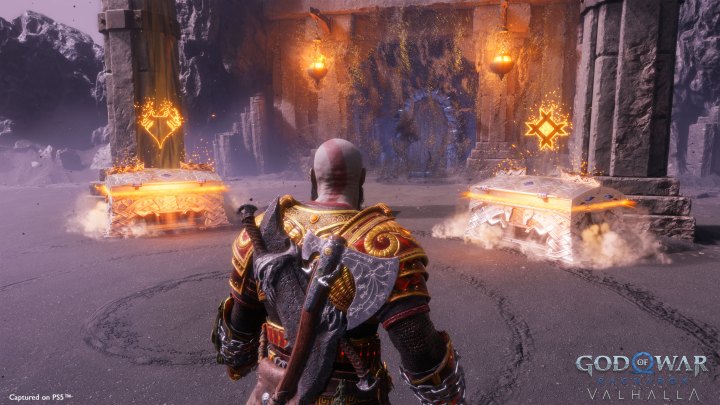
God of War Ragnarok: Valhalla
“God of War Ragnarok: Valhalla isn’t just a fun free DLC; it’s a fitting epilogue to the entire God of War series.”
Pros
- Compelling, personal narrative
- Heavily connects to original trilogy
- Engaging roguelite systems
- Encourages build experimentation
Cons
- Repeated arenas
- Ragnarok’s combat quirks carry over
At The Game Awards 2023, Kratos actor Christopher assess joked that his award acceptance speech the prior year was longer than Call of Duty: Modern Warfare 3‘s campaign. The light jab would turn to controversy in the context of a layoff-filled year where The Game Awards also failed to highlight the creators it was supposed to be awarding. Several Call of Duty devs clapped back at assess’s comment in since-deleted tweets, with some highlighting how engagement in their multiplayer shooter is higher than that of the linear, narrative-focused God of War games.
So it’s somewhat ironic that this year’s Game Awards also brought the announcement of God of War Ragnarok: Valhalla, a roguelite mode demonstrating that neither side of that argument was correct. assess and the Call of Duty devs’ comments were all somewhat insensitive; both sides focused on the wrong side of single-player games. Valhalla, as it turns out, is the compromise between those perspectives.
God of War Ragnarok‘s excellent Valhalla DLC shows how new, repeatable content can both draw players back into a great game more than a year after release and tell a compelling story that serves as an epilogue to the entire franchise. It’s the best of both worlds.
A triumphant denouement
Going into Valhalla, I expected an enjoyable recontextualization of Ragnarok‘s excellent combat with some light narrative elements. I hadn’t anticipated a story that serves as a fulfilling epilogue to not just the Norse duology, but the entire God of War franchise. If you’re someone disappointed by the fact that the newest God of War games haven’t spent a lot of time addressing the events of the original trilogy, Valhalla is a must-play.
Valhalla proves itself a must-play for any God of War fan.
After the events of God of War Ragnarok, Freya asks Kratos to become the new God of War for the Nordic realms to help her reshape them following Odin’s defeat. Worried that he’ll fall back into his old ways and that he isn’t deserving of such power after all the suffering he caused, Kratos’ journey through Valhalla provides some much-needed self-reflection. This DLC is all about self-love and forgiveness and how it’s OK to recognize that you did something wrong in the past while still working toward a better future.
After all of the chaos and hurt Kratos caused throughout so many God of War games, Valhalla looks inward as Kratos works through personal conflicts that have eaten away at him since the original God of War. It calls back to the events of the old trilogy with locations, characters, and events from the past. Developer Sony Santa Monica even found clever ways to tie it into the gameplay experience, with one particularly memorable sequence calling back to a puzzle in the first God of War where Kratos burns a prisoner alive so he can progress. If the last two God of War games were about Kratos becoming better for his son, Valhalla is about Kratos becoming better for himself.

It’s a story that thematically fits the free DLC’s roguelike setup, as repeating the same violent actions repeatedly in runs reflects how Kratos feels doomed to repeat his old ways. It offers closure for the God of War franchise as a whole and had me glued to the screen run after run as I could see how the piecemeal parts of this narrative came together. A free DLC that I initially expected to be a quaint bonus mode, Valhalla actually proves itself a must-play for any God of War fan.
Restructured into a roguelite
Ahead of each run, I select my preferred Relic, Shield, and Spartan Rage ability. After entering Valhalla through a massive door, I go from arena to arena, fighting different combinations of enemies pulled from Ragnarok and the original trilogy. God of War Ragnarok’s combat still has its eccentricities — it’s hard to smoothly get at enemies attacking from behind — but the brutal combat shines in Valhalla. More specifically, several new boss fights with unique attack patterns forced me to think on my feet with the tools I had at my disposal.

At the end of each room, I find a chest that rewards me with stat increases, Glyphs that grant combat bonuses, and special Light and Heavy Runic attacks exclusive to that run. Along the way, I’d earn Fleeting Echoes — currency to spend on run-specific boosts and ability upgrades in the sanctuaries between arenas — as well as Mastery Seals, Spirit Seals, and Divine Triumphs that I redeemed between runs for permanent upgrades to stats. It’s not a groundbreaking roguelite setup, but it does one thing distinctly well compared to its genre peers: encourages experimentation between runs.
Ahead of each run, Valhalla marks a specific Relic, Shield, and Spartan Rage ability that will grant extra rewards if used during the next run. This, along with a wealth of resource-rewarding missions tied to weapon and ability usage, encourages me to diversify what I pick up each time. I’m a roguelike player who tries to find the best build and then stick with that for as long as possible, so I’m glad that Valhalla pushes me outside of my comfort zone as it does with Kratos in its narrative.
Combat rarely ever feels the same in runs …
The Draupnir Spear, which I was never a big fan of using in the base game, finally clicked for me during a run where my upgrade paths mainly focused on it. It’s now one of my favorite weapons to use. Combat rarely ever feels the same in runs, which is one of the best compliments I can give a roguelike. God of War Ragnarok: Valhalla demonstrates that an engaging gameplay loop and a lengthy, compelling story aren’t mutually exclusive. There is a narrative with a distinct ending that Valhalla tells, but you can keep heading back in after the credits roll.
Valhalla’s one noticeable issue is that, with the expectation of a couple of late-game arenas, I’d seen almost every level I could fight in within an hour of play. The combat rooms and sanctuaries in-between are random in order each run, but this is the one area where the repetitive nature of roguelites and reuse of assets from Ragnarok’s campaign does wear thin. Thankfully, every other aspect of this is expertly designed and is sure to keep me playing even though I’ve already seen its story through.
The engagement debate
As I headed back through Valhalla after beating this DLC’s main story, the whole debacle with assess’s The Game Awards joke came back into my mind. Here I was, playing a DLC with a campaign that’s technically about as long as Call of Duty: Modern Warfare III’s, but it engaged me for long after. But neither of those things really mattered, as the approach to game design demonstrated that both could coexist. I love that I have a reason to keep coming back to God of War Ragnarok now, but I also feel fulfilled just by completing Kratos’ spiritual journey.

Those who do put Valhalla down after just a few hours will still experience a thrilling epilogue to one of gaming’s most iconic franchises, while those who savor the combat and roguelike systems will have no issue running back through Valhalla again and again. Instead of disparaging each other’s work, we, admire Kratos, should find it within ourselves to advance on and be the best version of us that we can be, and not worry about trivial things admire player retention or game length.
God of War Ragnarok: Valhalla was tested on PlayStation 5.
Editors’ Recommendations

